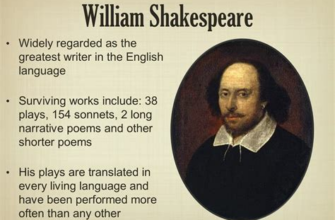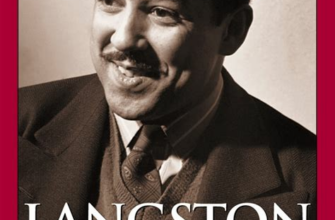Embark on a captivating exploration as we delve into the enigmatic world of Geoffrey Chaucer, a luminary figure whose contributions revolutionized Renaissance literature and shaped the course of English language forever. This riveting journey offers a thought-provoking glimpse into the intricate tapestry of Chaucer's exceptional life, multifaceted talent, and profound impact on the literary landscape.
With each stanza curated in breathtaking intricacy, Chaucer's poetic heritage transcends the boundaries of time, transporting us to a bygone era laden with vivid imagery, evocative symbolism, and a mesmerizing interplay of words. As we wander through the serpentine alleys of his works, we embark upon an extraordinary pilgrimage, immersing ourselves in the rich tapestry of his narratives and traversing the depths of his profound insights.
Amidst the tumultuous tide of the Renaissance period, Chaucer effortlessly emerged as a literary luminary, dazzling all with his extraordinary command over the English language and his unprecedented ability to breathe life into the characters populating his tales. Within the enchanting pages of his literary repertoire, one can witness a vibrant medley of tales, rich in diversity, as they navigate through the vibrant mosaic of human experience. From knights and merchants to friars and priests, Chaucer unveils a tapestry of characters intricately woven with delicate threads of social commentary, satire, and an indomitable wit.
Chaucer's prose radiates an ineffable charm, beckoning readers into a world where courtly love intertwines with treachery, where the pursuit of knowledge intertwines with religious fervor, and where the timeless beauty of nature artfully juxtaposes the flawed nature of humankind. Driven by an insatiable curiosity and an unparalleled creativity, Chaucer effortlessly bridges the gap between the medieval and modern worlds, leaving an indelible mark on literature that resonates to this day.
The Early Years and Education of Geoffrey Chaucer

Delving into the formative period of Geoffrey Chaucer, this section sheds light on his early life and educational journey, providing a glimpse into the influential factors that shaped his future literary endeavors.
Geoffrey Chaucer, renowned for his exceptional literary contributions during the Renaissance era, had a humble beginning that laid the groundwork for his remarkable career. Born into a world characterized by a burgeoning interest in arts and intellectual pursuits, Chaucer's childhood exposed him to a milieu steeped in cultural richness and intellectual curiosity.
Although specific details about his early education remain elusive, it is evident that Chaucer's thirst for knowledge was nurtured during his formative years. Influenced by the intellectual climate of his time, he embraced learning as a means to broaden his horizons and engage with the literary traditions that were beginning to flourish.
Chaucer's educational journey took him through various institutions, where he harnessed his academic prowess and honed his literary skills. It was within these educational settings that he absorbed the diverse literary traditions and acquired the tools to express his own unique artistic voice.
| Educational Institutions | Years Attended |
|---|---|
| St. Paul's Cathedral | Ministry Education |
| University of Cambridge | Studies in Classics and Latin |
Chaucer's time at St. Paul's Cathedral provided him with a solid foundation in ministry education, fostering a deep appreciation for religious texts and theological concepts. This spiritual grounding would later find its way into his literary works, infusing them with a profound sense of spiritual reflection.
Continuing his educational journey at the University of Cambridge, Chaucer delved into the study of classics and Latin, immersing himself in the works of renowned scholars and philosophers. This exposure to classical literature and intellectual discourse undoubtedly contributed to the richness and depth that characterize his later writings.
The early years and education of Geoffrey Chaucer laid the groundwork for his illustrious literary career. The seeds of intellectual curiosity sown during his formative years, along with the diverse educational experiences he cherished, empowered him to become a literary luminary whose words continue to resonate across centuries.
The Literary Legacy of Geoffrey Chaucer
In this section, we will delve into the enduring literary contributions of the esteemed Renaissance wordsmith, Geoffrey Chaucer. Through his masterful use of language, Chaucer created a rich tapestry of stories and characters that continue to captivate readers of all generations.
- Revolutionary Storytelling Techniques: Chaucer's inventive narrative techniques, such as his use of multiple narrators and his skillful blending of diverse literary styles, set him apart as an innovator of his time. His works, including The Canterbury Tales, showcased his ability to portray a wide range of human experiences and emotions.
- Depictions of Medieval Society: Chaucer's writings provide invaluable insights into the social, cultural, and political landscape of medieval England. Through vivid characterizations and astute observations, Chaucer portrayed various strata of society, from the nobility to the common folk, shedding light on the complexities and contradictions of the era.
- Exploration of Love and Romance: Chaucer's exploration of love and romance in his poetry revealed a nuanced understanding of human relationships. His beautifully crafted sonnets and lyrical verses captured the intricacies of courtly love, while also acknowledging the darker realities of passion and desire.
- Social Commentary and Satire: Chaucer's works did not shy away from critiquing the societal norms and institutions of his time. Through satire and irony, he fearlessly exposed the hypocrisy and follies of the clergy, the nobility, and other influential figures, offering a critical lens through which readers could reflect on their own society.
- Impact on English Literature: Chaucer's works played a pivotal role in shaping the early development of English literature. His innovative use of the English language, which was still evolving during the Renaissance, helped establish English as a respectable literary medium. His influence can be seen in the works of subsequent poets, from Shakespeare to the Romantic poets of the 18th and 19th centuries.
Through his literary brilliance and profound understanding of the human condition, Geoffrey Chaucer left an indelible mark on the world of literature. His works continue to inspire and resonate with readers, reminding us of the enduring power and beauty of words.
The Impact of Geoffrey Chaucer on the Development of English Literature

Geoffrey Chaucer, a distinguished figure of the Renaissance era, played a significant role in shaping the course of English literature. His profound influence can be witnessed in various aspects, encompassing the themes, styles, and techniques employed by subsequent generations of writers. Chaucer's contribution to the English language and literary tradition is nothing short of remarkable.
- Language Evolution: Chaucer's literary works, notably his magnum opus The Canterbury Tales, served as a catalyst for the development and standardization of the English language. His adept use of Middle English, a precursor to Modern English, showcased the potential of the vernacular as a medium for literary expression.
- Realism and Portrayal of Human Nature: Chaucer's writings possessed a remarkable level of realism, as he depicted characters from diverse social backgrounds in his narratives. His nuanced portrayals provided a glimpse into the complexities of human nature, exploring themes of love, desire, greed, and morality.
- Pioneering Narrative Techniques: Chaucer was a trailblazer in experimenting with various narrative techniques, including the use of frame narratives and multi-layered storytelling. His innovative approach to structure and storytelling paved the way for future writers to explore new narrative devices and perspectives.
- Social Commentary and Critique: Chaucer's works often carried profound social commentary and critique of the prevailing societal norms and hierarchies. With his keen observations, he highlighted the disparities and injustices present in medieval society, challenging the status quo and advocating for change.
- Literary Influence: Chaucer's literary brilliance left an indelible mark on subsequent generations of English writers. His skillful blend of humor, wit, and social commentary inspired numerous poets and authors, influencing genres such as poetry, satire, and drama for centuries to come.
In conclusion, Geoffrey Chaucer's impact on English literature is immeasurable. His experimentation with language, realistic character portrayals, narrative techniques, social critique, and overall literary genius laid the foundation for the literary traditions we cherish today. Chaucer's legacy continues to be celebrated and studied, reinforcing his status as a true Renaissance luminary.
The Social and Historical Context Surrounding Chaucer's Literary Works
In this section, we will delve into the societal and historical backdrop against which Geoffrey Chaucer's masterpieces were crafted. Exploring the conditions that shaped Chaucer's writing provides valuable insights into his notable contributions to English literature.
Chaucer's literary endeavors emerged during a time characterized by significant social and cultural transformations. In examining the social context, we gain a deeper understanding of the societal norms, hierarchical structures, and interactions that influenced the poet's writings. As Chaucer navigated a society transitioning from feudalism to a burgeoning middle class, his works often reflect the complex power dynamics and social tensions of the era.
Furthermore, understanding the historical context of Chaucer's writings allows us to appreciate the intricate connections between his narratives and the events that unfolded during his lifetime. Chaucer lived in a time of political upheaval, including the Hundred Years' War between England and France. These historical events had a profound impact on Chaucer's work, as he skillfully incorporated political commentary and observations about the conflicts of his time into his diverse range of literary creations.
By examining the social and historical context of Chaucer's works, we gain a more nuanced perspective on the motivations, inspirations, and social commentaries present within his timeless writings. Through the lens of historical analysis, we can fully appreciate the depth and brilliance of Chaucer's literary contributions, and their enduring relevance in the study of English literature.
The Lasting Influence of Geoffrey Chaucer on Contemporary Literature and Society

In the realm of modern literature and cultural heritage, the enduring impact of Geoffrey Chaucer continues to resonate. His profound literary contributions have transcended time, shaping the very fabric of contemporary artistic expression and societal understanding. Chaucer's unwavering ability to capture the essence of human experience and reflect the diverse facets of society has solidified his position as an influential figure in the literary canon.
Unforgettable Characters and Narrative Techniques: Chaucer's unparalleled talent for crafting memorable characters and employing innovative narrative techniques has left an indelible mark on modern literature. The compelling individuals that inhabit his works, from the bawdy Wife of Bath to the righteous Knight, not only entertain but also provide insightful commentary on human nature and the complexities of interpersonal relationships. Chaucer's use of various storytelling techniques, such as the frame narrative in "The Canterbury Tales," continues to inspire contemporary authors to experiment with form and structure, pushing the boundaries of literary craftsmanship.
A Mirror to Societal Realities: Chaucer's works serve as a mirror to the societal realities of his time, offering a candid depiction of the Middle Ages. Through his discerning observations and satirical wit, Chaucer sheds light on the social hierarchies, political maneuverings, and cultural practices of the era. In the same vein, modern writers often draw inspiration from Chaucer's unflinching exploration of universal themes and societal issues, using his works as a touchstone for their own commentaries on contemporary society.
Enduring Relevance and Adaptation: Chaucer's works have transcended the confines of their original context and remain relevant to this day. His timeless themes of love, morality, and the pursuit of happiness continue to resonate with readers across cultures and generations. Additionally, Chaucer's stories have been adapted and reimagined in various forms, including plays, films, and even graphic novels, bridging the gap between medieval literature and modern entertainment. These adaptations not only introduce new audiences to Chaucer's narratives but also demonstrate the universality and enduring appeal of his literary legacy.
Cultural and Linguistic Influence: Beyond the realm of literature, Chaucer's impact can be seen in the development of the English language itself. Often referred to as the "Father of English Literature," Chaucer's innovative use of Middle English paved the way for the evolution of the language into its modern form. His linguistic contributions continue to enrich English vocabulary and grammar, making his works invaluable for scholars and language enthusiasts alike. Furthermore, Chaucer's writings have become symbols of cultural heritage, reminding us of the rich traditions and historical context from which they emerged.
Conclusion: Geoffrey Chaucer, with his literary brilliance and profound insights into the human condition, has left an enduring legacy in modern literature and culture. His memorable characters, innovative storytelling techniques, and keen social commentary make his works both captivating and relevant today. As we continue to explore the depths of Chaucer's literary genius, we gain a deeper appreciation for the lasting influence he has had on our understanding of ourselves and the world around us.
FAQ
Who was Geoffrey Chaucer?
Geoffrey Chaucer was a renowned poet and writer who lived during the Renaissance period in England. He is often considered the father of English literature and is best known for his masterpiece "The Canterbury Tales."
What was the literary brilliance of Geoffrey Chaucer?
Geoffrey Chaucer's literary brilliance lies in his ability to create vivid characters, write in a variety of genres, and his keen observations of human nature. He revolutionized English poetry by popularizing the use of vernacular language, and his works continue to be studied and celebrated till today.
What is "The Canterbury Tales" about?
"The Canterbury Tales" is a collection of stories told by a group of pilgrims travelling to the shrine of Thomas Becket in Canterbury. Chaucer brilliantly captures the diverse personalities, social classes, and moral strengths and weaknesses of the pilgrims through their tales.
How did Geoffrey Chaucer contribute to English literature?
Geoffrey Chaucer made significant contributions to English literature by writing in the vernacular instead of the traditional Latin or French. He helped establish English as a legitimate literary language, paving the way for future writers. His works also provided insightful social commentaries on the medieval society.
What is the significance of Geoffrey Chaucer's works today?
Geoffrey Chaucer's works continue to be studied and appreciated for their historical and cultural importance. They provide valuable insights into the social, religious, and political aspects of medieval England. Chaucer's writing style and techniques have also influenced countless poets and writers throughout the centuries.
Who was Geoffrey Chaucer and why is he renowned?
Geoffrey Chaucer was a renowned Renaissance poet. He is renowned for his significant contributions to English literature and for being the author of "The Canterbury Tales," a collection of stories written in Middle English. Chaucer's works had a profound impact on the development of English literature and his writings are still studied and admired today.



